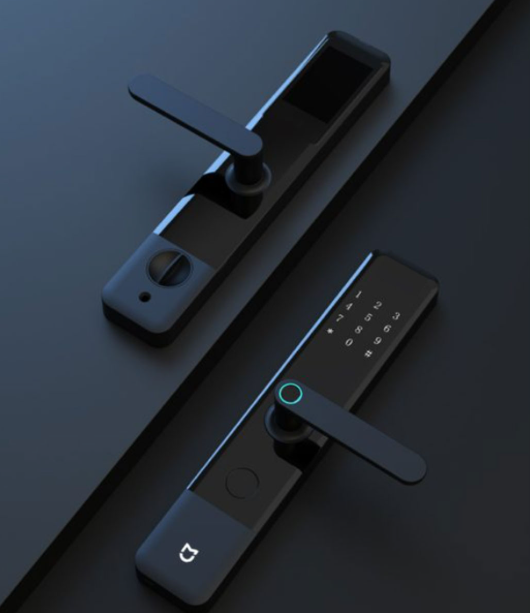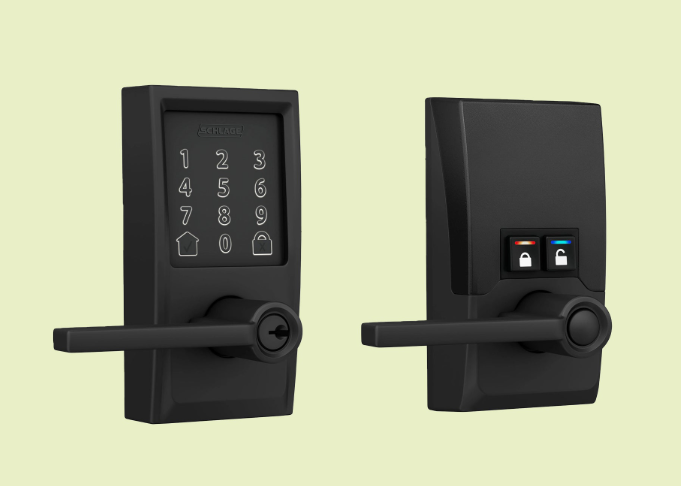The hospitality industry is undergoing a significant transformation, driven by technological advancements that prioritize convenience, security, and efficiency. At the forefront of this evolution is the hotel smart lock experience, a game-changer for hotels aiming to elevate guest satisfaction while streamlining operations. Unlike traditional key or keycard systems, smart locks offer a seamless, secure, and modern approach to room access, enhancing the overall guest experience. In this comprehensive guide, we’ll explore the ins and outs of the hotel smart lock experience, including smart lock installation, smart lock setup, and smart lock troubleshooting, to help hoteliers make informed decisions about adopting this cutting-edge technology. For more insights on choosing the right smart lock system, check out this smart lock guide.
Why the Hotel Smart Lock Experience Matters
The hotel smart lock experience is more than just a trendy upgrade; it’s a response to modern travelers’ expectations for convenience, security, and personalization. Traditional keys and magstripe keycards, while once standard, come with limitations such as the risk of being lost, demagnetized, or copied. Smart locks address these issues by offering keyless entry options like mobile apps, PIN codes, RFID keycards, and even biometric access, providing a frictionless and secure experience for guests. These systems not only enhance guest satisfaction but also reduce operational burdens for hotel staff, making them a win-win for the hospitality industry.
By integrating smart lock technology, hotels can offer guests a seamless check-in process, eliminating the need to queue at the front desk. For example, guests can receive a digital key on their smartphone, allowing them to head straight to their room upon arrival. This convenience, paired with enhanced security features, positions hotels to stand out in a competitive market. Let’s dive into the key components of the hotel smart lock experience and how they benefit both guests and hoteliers.
Key Features of the Hotel Smart Lock Experience
The hotel smart lock experience is defined by its innovative features, which combine security, convenience, and efficiency. Below are some of the standout elements that make smart locks a must-have for modern hotels:
- Mobile App Access: Guests can unlock their rooms using a smartphone app via Bluetooth or NFC technology. This eliminates the need for physical keys or cards, offering a contactless experience that’s both convenient and hygienic. How to pair a smart lock with a mobile app is typically straightforward, requiring guests to download the hotel’s app and follow simple instructions to sync their digital key.
- Keypad Entry: Smart locks with keypad entry allow guests to input a unique PIN code that expires after their stay, enhancing security by eliminating the risk of lost keys. This feature is ideal for guests who prefer not to rely on their smartphones.
- RFID and Bluetooth Keycards: Unlike traditional magstripe cards, RFID and Bluetooth keycards are more secure and less prone to demagnetization. They offer a tap-to-unlock experience, making access quick and reliable.
- Remote Access Control: Hotel staff can manage room access from a centralized dashboard, granting or revoking access instantly. This is particularly useful for managing housekeeping schedules or addressing security concerns.
- Integration with Property Management Systems (PMS): Smart locks can seamlessly integrate with a hotel’s PMS, automating tasks like check-in, check-out, and room assignment, which reduces staff workload and improves operational efficiency.
These features collectively create a hotel smart lock experience that prioritizes guest convenience while ensuring robust security. For hoteliers looking to explore the best options, home security tips can provide valuable insights into selecting a system that meets specific property needs.
Smart Lock Installation: A Seamless Transition
One of the key advantages of smart locks is their ease of installation, making them suitable for both new constructions and retrofits. Smart lock installation typically takes 10 to 15 minutes per door and can often be done without significant modifications to existing door hardware. For hotels transitioning from traditional locks, retrofit-friendly models are available that preserve the property’s aesthetic while upgrading security.
The installation process generally involves the following steps:
- Remove the Old Lockset: The existing lock is removed, ensuring the door is prepared for the new smart lock.
- Install the Smart Lock: Follow the manufacturer’s instructions to mount the smart lock, which often replaces the existing cylinder or lockset.
- Configure the System: Set up the lock’s software, including passcodes, mobile app integration, or RFID keycard programming.
- Test the Lock: Ensure the lock functions correctly with all intended access methods, such as mobile apps, PIN codes, or keycards.

Proper smart lock installation ensures a reliable and secure experience for guests. Many manufacturers, such as those featured on smartlockchoice.com, offer detailed guides and professional support to simplify the process.
Smart Lock Setup and Configuration
Once installed, the smart lock setup process is critical to ensuring a smooth hotel smart lock experience. Most smart lock systems come with user-friendly software that allows hotel staff to configure access settings, manage digital keys, and monitor room activity. Here’s how to set up a smart lock system effectively:
- Connect the Smart Lock: Pair the lock with the hotel’s PMS or a dedicated management platform. This typically involves connecting the lock to a local server or cloud-based system via Wi-Fi, Bluetooth, or Zigbee communication.
- Assign Access Credentials: Generate unique PIN codes, mobile app keys, or RFID cards for each guest, programmed to expire at check-out for added security.
- Test Connectivity: Ensure the lock communicates seamlessly with the management system, allowing staff to monitor access and troubleshoot issues remotely.
- Train Staff: Educate hotel staff on managing the system, including how to issue digital keys, revoke access, and respond to guest inquiries about the lock.
A well-executed smart lock setup minimizes disruptions and ensures guests can access their rooms effortlessly. Regular updates to the system’s software are also essential to maintain security and compatibility with new devices.
Smart Lock Troubleshooting: Addressing Common Issues
While smart locks are designed for reliability, occasional issues may arise that require smart lock troubleshooting. Common problems include connectivity issues, battery depletion, or incorrect PIN entries. Here are some tips to resolve these issues:
- Connectivity Problems: If a guest’s smartphone fails to connect a smart lock, ensure their Bluetooth or Wi-Fi is enabled and the hotel’s app is updated. Restarting the app or re-pairing the lock can often resolve the issue.
- Battery Life Concerns: Smart lock battery life is typically long-lasting (often 1–2 years), but low battery warnings should be addressed promptly. Replace batteries as recommended by the manufacturer to avoid lockouts.
- Incorrect PIN or Keycard Issues: If a guest enters an incorrect PIN or their keycard fails, staff can generate a new code or card remotely via the management system.
- System Downtime: For cloud-based systems, ensure a stable internet connection. Some locks, like those with local servers, can operate offline to prevent disruptions.
By proactively addressing these issues, hotels can maintain a positive hotel smart lock experience and avoid guest frustration. Regular smart lock maintenance, such as checking battery levels and updating software, further enhances reliability.
Smart Lock Safety and Security
Smart lock safety is a top priority for hotels, as guests expect their belongings and personal safety to be protected. Smart locks offer advanced security features that surpass traditional locks, including:
- Encrypted Credentials: Digital keys and PIN codes use advanced encryption to prevent unauthorized access.
- Tamper-Resistant Design: Many smart locks, made from durable materials like stainless steel, are built to withstand tampering attempts.
- Real-Time Monitoring: Staff can track room access and receive alerts for unauthorized entry attempts, enhancing overall security.
- Emergency Access: Smart locks can be programmed to unlock automatically during emergencies, such as fire alarms, ensuring guest safety.
These features make the hotel smart lock experience a cornerstone of modern hotel security, providing peace of mind for both guests and staff.
Portable Smart Locks for Unique Hospitality Settings
For smaller properties like bed-and-breakfasts or vacation rentals, portable smart locks offer a flexible solution. These locks can be easily installed on existing doors without permanent modifications, making them ideal for temporary or seasonal accommodations. Portable smart locks often support keypad entry or mobile app access, providing the same level of convenience and security as fixed systems. They’re particularly useful for properties with limited budgets or those looking to test smart lock technology before committing to a full installation.
Smart Lock Maintenance and Battery Life
To ensure a consistent hotel smart lock experience, regular smart lock maintenance is essential. This includes:
- Battery Checks: Monitor smart lock battery life and replace batteries as needed to prevent lockouts. Most systems provide low-battery alerts well in advance.
- Software Updates: Keep the lock’s firmware and management software updated to address security vulnerabilities and improve performance.
- Physical Inspections: Periodically inspect locks for signs of wear or damage, especially in high-traffic areas.
Proper maintenance extends the lifespan of smart locks and ensures a reliable guest experience.
Smart Lock Tips for Hoteliers
To maximize the benefits of the hotel smart lock experience, hoteliers should consider the following smart lock tips:
- Choose a Reputable Brand: Opt for trusted manufacturers like VingCard, Salto, or Dormakaba, known for their reliability and integration capabilities.
- Prioritize Guest Education: Provide clear instructions on how to pair a smart lock with a smartphone or use a PIN code to ensure guests can access their rooms easily.
- Invest in Staff Training: Ensure staff are well-versed in managing the smart lock system, from issuing digital keys to troubleshooting issues.
- Evaluate Integration Needs: Select a system that integrates seamlessly with your existing PMS to streamline operations.

Choosing the Best Smart Lock for Your Hotel
Selecting the right smart lock system is crucial for delivering an exceptional hotel smart lock experience. When choosing a system, consider the following factors:
- Property Size and Needs: Larger hotels may require robust systems with advanced integration, while smaller properties might benefit from simpler, portable smart locks.
- Budget: While smart locks can be more expensive upfront (starting at around $500 per lock), their long-term benefits, such as reduced key replacement costs and improved guest satisfaction, make them a worthwhile investment.
- Guest Preferences: Consider whether your guests prefer mobile app access, PIN codes, or RFID keycards, and choose a system that offers multiple entry options.
- Durability: Opt for locks made from high-quality materials, such as stainless steel, to ensure longevity and resistance to tampering.
For a detailed comparison of top smart lock systems, refer to this best smart lock guide.
Conclusion: Elevating Hospitality with the Hotel Smart Lock Experience
The hotel smart lock experience is revolutionizing the hospitality industry by offering a perfect blend of convenience, security, and operational efficiency. From seamless smart lock installation to intuitive smart lock setup and proactive smart lock troubleshooting, these systems empower hotels to meet the demands of modern travelers while streamlining operations. By investing in smart lock technology, hoteliers can enhance guest satisfaction, reduce operational costs, and future-proof their properties in a competitive market.
Whether you’re managing a boutique hotel or a large resort, the right smart lock system can transform the guest experience. By prioritizing smart lock safety, maintaining smart lock battery life, and following smart lock tips, hotels can ensure a reliable and enjoyable experience for every guest. Ready to explore the possibilities? Visit smartlockchoice.com for expert guidance on choosing the best smart lock system for your property.